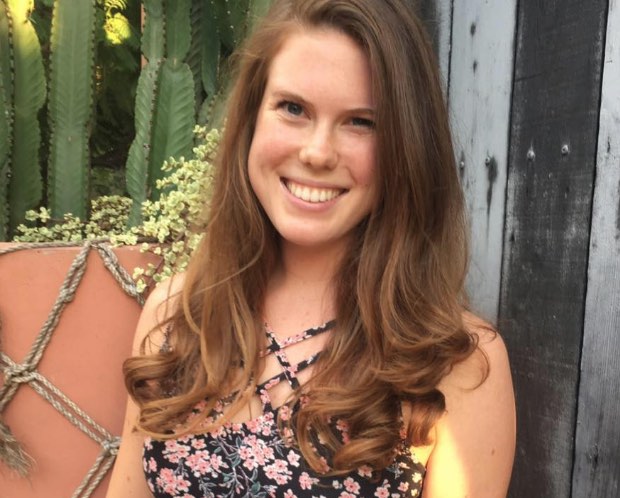
Conquering an Eating Disorder
I was thirteen years old when I learned what a calorie was.
I was always a slender child, largely in part to the organic and vegetarian food my mom kept around the house, but around the time of my eighth grade graduation, puberty and junk food joined forces to add a few extra pounds. It was the age of walking to Starbucks with friends to get frappucinos; buying king-size chocolate bars from 7-11; and eating pizza at youth group gatherings. I’d always been thin, so I took for granted that my figure wouldn’t change with my eating habits.
Enter the calorie. Suddenly, food and exercise came with numerical values. It was such a simple concept; calories in, calories out. I fervently downloaded apps and perused weight-loss forums until I knew by heart the caloric content of everything I regularly ate.
During my first two years of high school, I was thin—underweight according to my BMI—and determined to remain that way. I kept tracking my calories religiously and weighing myself every day, sometimes multiple times a day. I exercised every night, even on days of show choir rehearsals and tennis practices. Going to bed hungry became the norm, the mark of a successful day.
My self-restraint took on an all-or-nothing mentality. If I wanted ice cream, I would start off just having a small bowl, which would turn into an entire pint. I’d feel furious about myself and physically sick, leading to a “screw it” mentality. In my skewed logic, since I’d already ruined my day, it made sense to binge and then starve myself the next day. Not great for my metabolism, to say the least.
Around the time of my junior year, puberty fully kicked in. I suddenly looked like a woman instead of a child, curvy hips and all. When I see photos from this era now, I can see that I looked good, but at the time I was horrified. As I tried to lose the 10-15 pounds I’d gained, my binge/restrict cycle only became worse. By the end of high school my body was more or less the same. I lost eight pounds the summer before college, but the weight came back quickly once the semester began.
Still clinging to the image of myself as a teenage waif, I refused to accept my body’s new set point. I turned down a lot of experiences, like attending events with “triggering” foods or going to the beach in a bikini, because I was so insecure about my body.
During my sophomore year, I took the amazing opportunity to study abroad in Lausanne, Switzerland; the land of cheese and chocolate. That year, I didn’t pack a scale in my luggage. Even though I’d heard of the “Abroad 15,” I assumed that by exercising regularly I would be able to maintain my weight or even lose a few pounds. Very soon, however, my emotional eating reached an all-time high.
I was in a foreign country where I barely spoke the language, felt distant from my classmates, and desperately missed my family and friends back home. Instead of building relationships with people from my program, I spent my free time walking through town alone, buying ice cream and macarons for no reason. On weekend trips, I would binge every day under the guise of “experiencing the local cuisine.” By the end of the year, even after training for and running a full marathon, I came back twenty pounds heavier.
By this point, I could identify connections between my emotions and my eating habits, but the unhealthy patterns persisted. My junior year was filled with rejection, roommate issues, and confusion about my purpose in life. With encouragement from friends, I finally started seeing a therapist about my issues with food. I’d held out on getting professional help for a long time because my mom is a psychiatrist and I thought I already knew everything about mental health.
Although I didn’t stay in therapy for very long, however, I definitely benefitted from it. Gaining perspective from a completely objective person, a space where you can just talk, can be quite cathartic. I’d like to point out that although Anorexia and Bulimia are the most widely known eating disorders, Binge Eating Disorder is also highly common and not addressed frequently enough. Like the majority of people with eating disorders, mine would be categorized as EDNOS: Eating Disorder Not Otherwise Specified, since it’s contained elements of all three at different times.
I once took part in a group focused on discussing body image issues. One of the questions at the beginning was “How do you feel knowing that celebrities are photoshopped?” My honest answer: it doesn’t make a difference for me. Even if famous people aren’t as flawless as they often appear, I see women every day who look like they could be models. These average women on the streets, in college classrooms, and on Instagram are real people that I know personally. That’s who I’m comparing myself to, not Beyoncé or Gigi Hadid.
It’s cliché to say that God makes us in different shapes and sizes. Really think about it, though. If all the trees in the forest looked the same, it would be boring and a little bit creepy. As children of God, we are called to treat our bodies as temples. That doesn’t mean eating nothing but donuts and milkshakes, and it also doesn’t mean starving ourselves and over-exercising. I once saw a quote to the effect of “your ideal weight is the weight you reach when you live the healthiest lifestyle that you actually enjoy.”
That looks different for everyone! We are only given one life on this earth. If your quest for the perfect body is making you miserable, consider reassessing your choices. Your inner peace is infinitely more important than the size of your jeans.
Remember that you are defined not by how you look or how people perceive you, but by your character and your identity in Christ. I guarantee that when you look back at your life ten years from now, you won’t regret that you never lost that extra five pounds. If you waste your livelihood perpetuating an eating disorder, you will truly mourn that time.
When I look back at my experience in high school and college, I deeply regret becoming consumed by an illness—because that’s what eating disorders are—during my most vibrant years. I wish I’d spent more time with friends instead of compulsively running around the track. I wish I’d enjoyed myself at parties instead of worrying about the food that might tempt me there. When you stop letting your ED dictate how you live, the world opens up.
Now, almost a year out of college, I still struggle with disordered thoughts. I instinctively count calories in my head and exercise to burn the “excess.” I’ve stopped weighing myself, but I still scrutinize my body in the mirror and compare it to others. They say you’re never fully recovered from an eating disorder; even those who’ve found freedom consider themselves 99% recovered. At this point, I’m probably at about 85%.
I’m far from perfect, but I can honestly say that my attitude and perspective is improving every day. I’m learning to accept myself, to see the beauty in my so-called flaws. We are more than conquerors in Christ Jesus!! In Him, we have the power to overcome every temptation, as long as we are willing to change.

Nicole Kennedy is a law student & blogger living in Irvine, CA.





